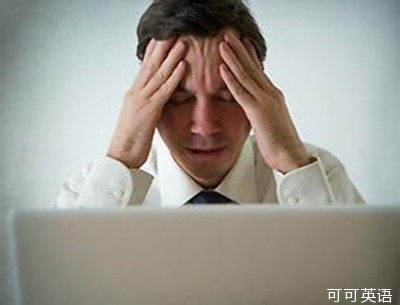(单词翻译:单击)
It's time to go again to the A Moment of Science mailbag. Alistener writes:
又到了我们查看《科学一刻》栏目读者来信的时候了,一位听众这样写道:
Dear A Moment of Science,
亲爱的《科学一刻》栏目,
My husband works a night shift, and I'm worried that it might be affecting his health.
现在我丈夫在值夜班,我很担心这样会影响他的健康。
He sleepsduring the day, but somehow that doesn't seem the same as getting a good night's rest.
他现在都是白天睡觉,但不知怎么回事,这样休息的效果看似不如晚上休息那么好。
Am I worrying unnecessarily, or not?
我的担心是否有必要呢?
Actually, burning the midnight oil, as it were, may raise the risk for depression and some learningdeficits.
实际上,熬夜会增加人们罹患抑郁的风险,并且会导致学习能力不足。
But not only because people who work at night don't get enough sleep.
但是,这并不完全是因为在晚间工作的人们没得到足够的休息。
According to onestudy, scientists think it's also because of too much exposure to light.
根据一项研究,科学家们认为过多地暴露在光线下也是原因之一。

Because it raises the levels of stress hormones in the body, hormones that have been linked todepression and to slower cognition.
因为光线会使得人体内应激激素水平增加,这种激素是与抑郁情绪和缓慢的认知有联系的。
Now, it's worth noting that the study was done on mice.
现在,值得注意的是,这项试验是在小白鼠身上进行的。
And although mice are sensitive to overexposure to light in ways similar to people, how humans reactto light is not identical to mice.
尽管小白鼠对于过度暴露在光线下的敏感反应与人类相似,但人类对光线的反应与小白鼠还是不尽相同的。
Still, though, it's also worth considering that humans evolved over millions of years rising with thesun and going to sleep when it got dark.
同时,人类在几百年来的进化过程中形成的日出而作日落而息的生活习惯也是值得考虑的一个因素。
It's only relatively recently, with the advent of artificiallight, that we began being exposed to light at all hours of the day and night.
但是,由于近代人造光的发明,人类开始日日夜夜暴露在光线下。
So it's not such a radical notion that being up at night in the light when the body is built to beasleep in the dark could have some detrimental effects.
因此,人们在本该休息的夜间暴露在光下工作会产生一定的不利影响,这并不是一种激进的思维方式。
The science on the question is still evolving, but the bottom line is that there's some reason to bewary of being too much in the light.
在这个问题上,科学知识仍在继续发展和壮大,但是过多地暴露在光线下这个问题还是需要人们警觉的。


